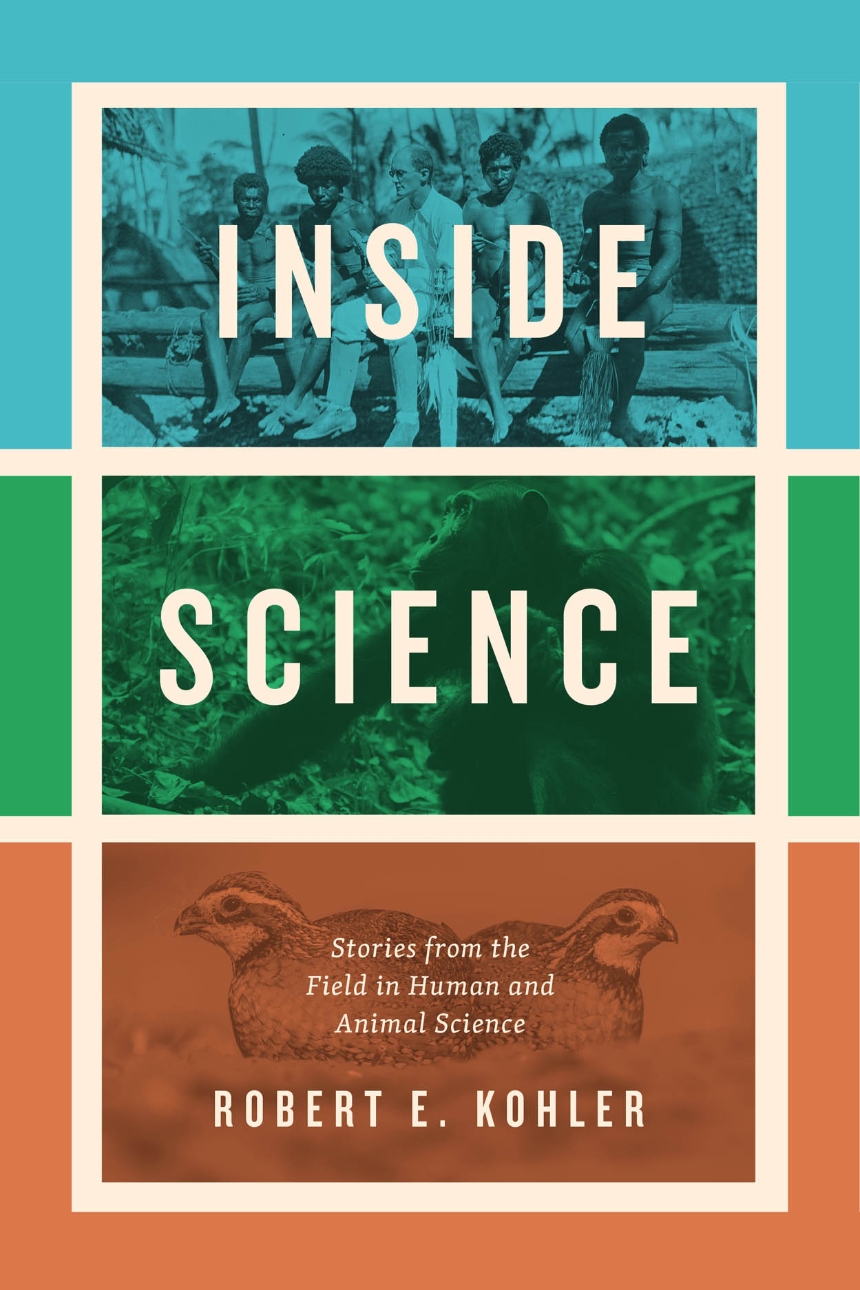Inside Science
Stories from the Field in Human and Animal Science
Context and situation always matter in both human and animal lives. Unique insights can be gleaned from conducting scientific studies from within human communities and animal habitats. Inside Science is a novel treatment of this distinctive mode of fieldwork. Robert E. Kohler illuminates these resident practices through close analyses of classic studies: of Trobriand Islanders, Chicago hobos, corner boys in Boston’s North End, Jane Goodall’s chimpanzees of the Gombe Stream Reserve, and more. Intensive firsthand observation; a preference for generalizing from observed particulars, rather than from universal principles; and an ultimate framing of their results in narrative form characterize these inside stories from the field.
Resident observing takes place across a range of sciences, from anthropology and sociology to primatology, wildlife ecology, and beyond. What makes it special, Kohler argues, is the direct access it affords scientists to the contexts in which their subjects live and act. These scientists understand their subjects not by keeping their distance but by living among them and engaging with them in ways large and small. This approach also demonstrates how science and everyday life—often assumed to be different and separate ways of knowing—are in fact overlapping aspects of the human experience. This story-driven exploration is perfect for historians, sociologists, and philosophers who want to know how scientists go about making robust knowledge of nature and society.
Resident observing takes place across a range of sciences, from anthropology and sociology to primatology, wildlife ecology, and beyond. What makes it special, Kohler argues, is the direct access it affords scientists to the contexts in which their subjects live and act. These scientists understand their subjects not by keeping their distance but by living among them and engaging with them in ways large and small. This approach also demonstrates how science and everyday life—often assumed to be different and separate ways of knowing—are in fact overlapping aspects of the human experience. This story-driven exploration is perfect for historians, sociologists, and philosophers who want to know how scientists go about making robust knowledge of nature and society.
264 pages | 6 x 9 | © 2019
Anthropology: Cultural and Social Anthropology
Biological Sciences: Behavioral Biology
Sociology: General Sociology
Reviews
Table of Contents
Chapter One
Situating
Chapter Two
Participant Observer: Bronislaw Malinowski
Chapter Three
Hobo Sociologist: Nels Anderson
Chapter Four
Corner Sociology: William Whyte
Chapter Five
In Chimpland: Jane Goodall
Chapter Six
Wildlife Ecology: Three Life Histories
Situating
Chapter Two
Participant Observer: Bronislaw Malinowski
Chapter Three
Hobo Sociologist: Nels Anderson
Chapter Four
Corner Sociology: William Whyte
Chapter Five
In Chimpland: Jane Goodall
Chapter Six
Wildlife Ecology: Three Life Histories
Epilogue: Inside Science
Acknowledgments
Notes
Index
Acknowledgments
Notes
Index
